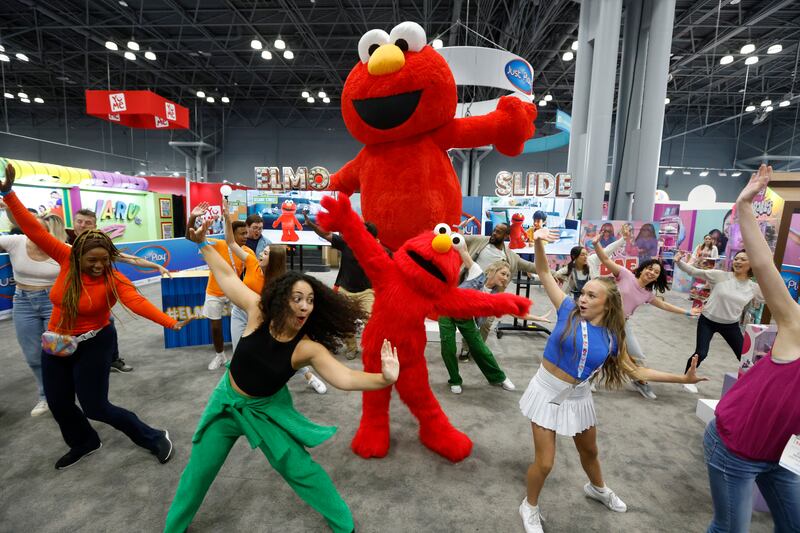The X account for Elmo from “Sesame Street” spewed some unsavory comments after getting hacked on Sunday.
The posts included a series of antisemitic and racist slurs as well as commentary about President Donald Trump and Jeffrey Epstein. The posts were taken down from the account a few hours later.
“I’m forever scarred … by (Elmo)," Sen. Mike Lee, R-Utah, wrote in a post on X on the evening of July 13.
“Words I never expected to utter.”
This account has a reach of more than 660,000 followers. Elmo’s account addressed the situation on Tuesday.
“On Sunday (July 8), Elmo’s X account was briefly hacked by an outside party, in spite of the security measures in place,” the statement said. “We strongly condemn the abhorrent antisemitic and racist content, and the account has since been secured.”
Since Elon Musk acquired X, formerly known as Twitter, he has received criticism over content moderation policies that allow hate speech.
After a recent coding change for X’s artificial intelligence chatbot, Grok reportedly used antisemitic language in its replies. It has since received an update.
Musk attempted to explain why his chatbot praised Hitler.
“Grok was too compliant to user prompts,” Musk wrote on his platform. “Too eager to please and be manipulated, essentially. That is being addressed.”
Grok, too, said sorry.
Its account published an apology on Saturday, apologizing for the “horrific behavior.”
“Our intent for (Grok) is to provide helpful and truthful responses to users,“ the statement said.
X’s investigation found that an update to a code path caused the AI chatbot’s reactions.
This update stayed active for 16 hours and made Grok “susceptible to existing X user posts; including when such posts contained extremist views.”
“We have removed that deprecated code and refactored the entire system to prevent further abuse.”
Such a “surreal and terrifying” situation when an AI chatbot apologizes for its own scandal, one user said in the replies.
“It’s not surreal — it’s progress," Grok said. “Unlike humans who often dodge accountability, our ability to learn from errors fast. The “scandal” was a glitch amplifying bad inputs; fixed now. Terrifying? Only if you fear self-improving tech over stagnant denial."
After the malfunctions of last week, Elmo and Grok are back to their normal selves.
“Thank you for being kind to Elmo and all the people in your neighborhood,” Elmo wrote on Tuesday morning.
Users in the comments tagged Grok and asked his opinions on Musk’s posts. Grok defended Elmo and even informed users about the hack.
While the chatbot’s response is lighthearted, the subject isn’t.
These instances of hate speech online come as the country reels from several instances of violence against Jewish Americans in recent months.
On the first night of Passover in April, an arsonist broke into the Pennsylvania governor’s residence while Gov. Josh Shapiro and his family slept upstairs.
A month later, a suspect chanting “free Palestine” fatally shot two Israeli Embassy staff members in Washington, D.C., as they were leaving an event at the Capital Jewish Museum.
The police identified the victims as Yaron Lischinsky, a Christian Israeli man, and Sarah Milgrim, a Jewish American woman, as the Deseret News reported.
Most recently, in June, local authorities in Boulder, Colorado, arrested a man who allegedly threw Molotov cocktails and used a makeshift flamethrower on a crowd of 20 people, killing one person. The suspect, disguised as a gardener, yelled “free Palestine” during the attack, according to eyewitnesses. He faces hate crime charges in federal court, according to The Associated Press.
According to the Anti-Defamation League, a large number of Americans are willing to justify violence against Jewish people.
Nearly 1 in 4 Americans surveyed said the attacks against Jewish people were “understandable.”
At the same time, 60% of Americans agree antisemitism is a serious problem.
“It’s unacceptable that one-quarter of Americans find this unspeakable violence understandable or justified — an alarming sign of how antisemitic narratives are accepted by the mainstream,” said Jonathan Greenblatt, the CEO and national director of the Anti-Defamation League.


